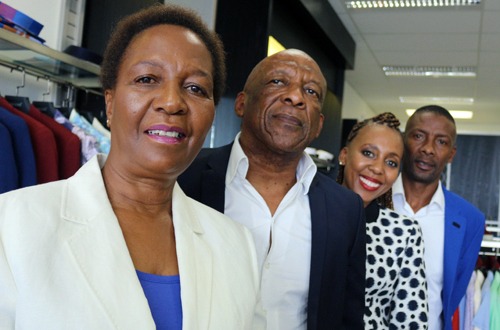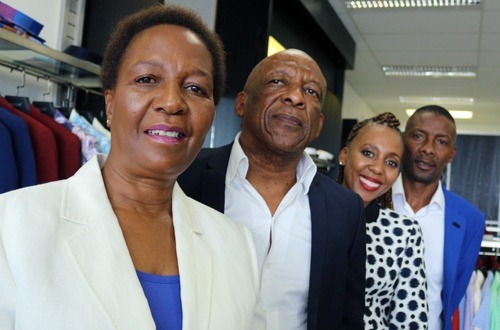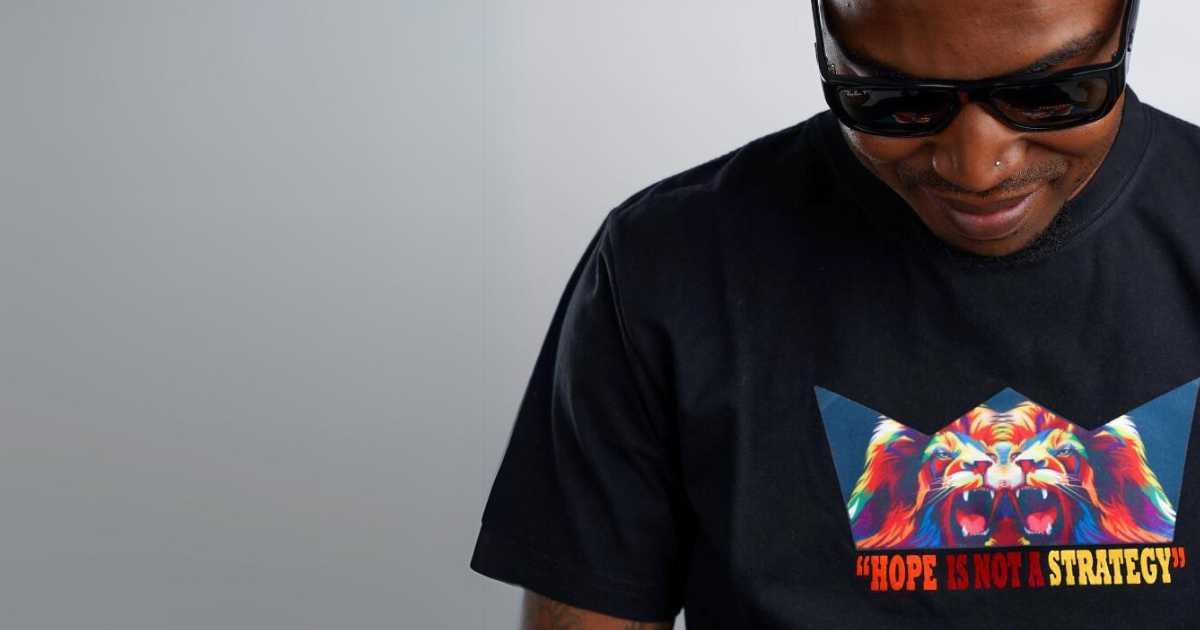
Aubrey Choene, owner of The Obriani retail chain which launched in the mid-1980’s, has the distinction of founding one of the first black-owned township-based fashion boutiques.
From the first single fashion boutique located at Mabopane in Pretoria, the retail chain grew to a total of eight stores across two provinces by the early 1990’s including Gauteng and North West, then called Bophuthatswana.
Today the boutique chain has a footprint across Gauteng with four retail stores across the province – two in Midrand, one in Fourways and two at Hartbeespoort, offering both men and women’s fashion as well as formal and black tie outfits.
A victim of success
Looking at their success today one wouldn’t think that the Choene family had once lost it all.
“Our business was flourishing since it was largely supported because of it being the first black-owned boutique in the township. We were overwhelmed by sudden success,” says Choene.
Choene made a mistake that many entrepreneurs make – that of misusing business money for personal use.
“This was during the time when the exodus from townships to suburbs was happening, so we got caught up in the trend of moving to Midrand and built a lavish designer house with business money,” Choene recalls.
The decision to close shop was traumatic and painful
It wasn’t long before the business began to suffer. At first, the family lost four of its eight stores, and slowly began to lose a grip on the ones that remained. Creditors started knocking on their door and soon the family had no option but to close shop and the business was liquidated.
“The decision to close shop was traumatic and painful, but because we had acknowledged our part in causing the closure, we were not in denial.”
We resolved to go out and find employment to keep our property from being repossessed and to keep our children in school,” he says.
Choene, a life-long entrepreneur, together with wife Vinny, was faced with being once again an employee. Choene went back to work for a national retail store chain and Vinny who had left her job when the business started picking up, had to go back to work as a bank teller.
“We shed our pride, and went to find employment, [we] endure[d] being humiliated by friends, the public and neighbours and we found solace in the confidence that we were capable of re-building our business.”
“We lived on our salaries, sold our vehicles, used public transport where necessary and downgraded our lifestyle,” says Choene.
Getting through it all
Closing down the business not only had financial consequences but was emotionally painful for the family as well.
However, the family managed to find comfort in each other, say Choene.
“Sticking together was made easy by the culture my wife and I have of making decisions jointly – for better or for worse – with the result that whatever happens out of a jointly-made decision, we share the joy of success together or accept failure and learn from it together.
“Whenever you fail in life, whether in marriage, career or business, there are usually very few sympathisers but we have been resolute and mature enough to ignore public opinion and focus on moving forward.”
A family affair
Driven by the desire to leave a legacy for their children and after realising that he still had entrepreneurship running through his veins, in the early 2000’s the Choene family reopened their business.
“Nine years is how long it took for us to recuperate, having to seek employment to repay debt and re-group.”
For their comeback, Choene got the whole family involved, including daughter Tshiamo who came onboard in a marketing capacity and who also brings in new ideas for catering for the young female market. Son Thabang helps them better cater for the young male market.
The family makes financial decisions together and the business is now flourishing.
Obriani is just one of many family business ventures that exist in South Africa. According to a study by the Small Enterprise Development Agency (Seda), family-owned businesses make up 50% of economic growth in the country. There is also an increasing number of entrepreneurs looking to venture into business with family. A report released by GEM State of Global Youth Entrepreneurship 2015, states that in sub-Saharan Africa, 77.7% of young emerging startup founders would opt to go into business with their family rather than a total stranger.
Building a success story
The biggest lesson they have learnt is that failure is part of the success equation, says Choene, and what matters the most is picking yourself up and not giving up.
They have also learned important financial lessons.
“We have learnt incredible discipline in spending, procuring goods and generally. We have avoided [making] impulsive, unplanned acquisitions.”

 The decision to close shop was traumatic and painful
The decision to close shop was traumatic and painful




